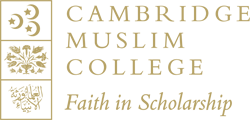PROGRAMME OUTCOMES
The programme has three inter-related aims:
- Enable students to understand and engage with contemporary debates about the role of religion in general, and Islam in particular, in modern society.
- Provide students with training in pastoral care to Muslims and others
- Equip students with practical skills to make them more effective leaders of Muslim institutions and to enhance their career prospects in all fields.
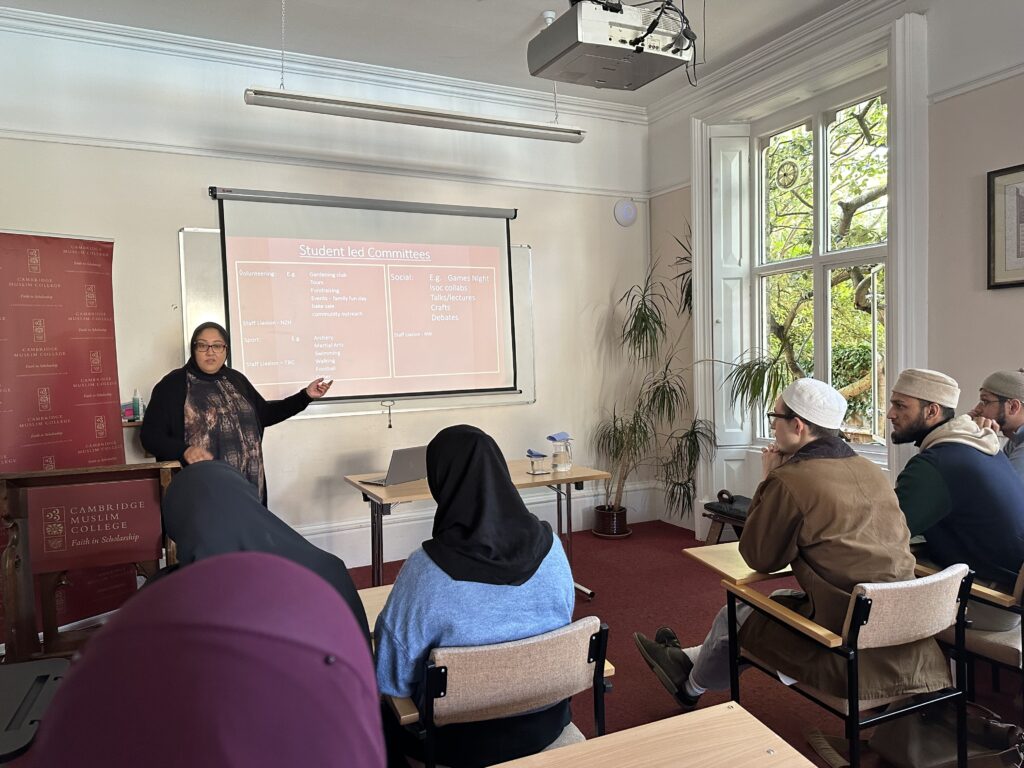
TEACHING METHODS
The programme is designed to be a rigorous, engaging, and enriching learning journey for students. Instructors are renowned specialists in their disciplines who will use didactic and dialogical styles of teaching that engage and challenge students to think analytically and critically.
Teaching will include lectures, tutorials, and seminars. As part of the programme, students will also travel nationally and internationally on trips aimed at broadening their knowledge through direct engagement with other religious, political, and civic leaders and institutions.
The design of the programme is meant to develop a rich and engaging cohort of students who interact as seekers of knowledge. As peers, they will reflect on what they have learnt and how best to contextualise it in the UK. The cohort class size is thus restricted to 20 students to facilitate this.
PROGRAMME STRUCTURE
- The programme will be delivered over three terms, each 11 weeks in length.
- In-person lectures will take place Mondays to Fridays from 9 — 5pm.
- Trips are organised throughout the year.
- This is a residential programme and students will live and study together at Cambridge Muslim College’s facilities.
ASSESSMENT
Students will be assessed using different methods aligned with module objectives. This may include, but not limited to class discussions, essays, critical dialogue, presentations, group projects, journaling progress or written examinations.
PLACEMENTS
From the second term, diploma students have the opportunity to engage in community and work placements that allow them to put their academic insights into meaningful action. These placements encompass a diverse range of experiences, from delivering khutbas (sermons) at local mosques, providing compassionate chaplaincy support at the renowned Addenbrooke’s Hospital, to participating in media training days with nationally recognised organizations. These hands-on experiences not only empower our students to apply what they’ve learned but also enrich their understanding of how their studies translate into practical, positive change in the world.
FIELD TRIPS
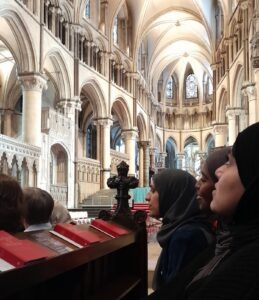 As part of the Diploma, students take part in an enriching programme of excursions to complement their academic studies. These carefully curated field trips take you to academic, historical, and cultural gems across the UK, including iconic locations such as the Houses of Parliament, renowned museums, and the awe-inspiring Canterbury Cathedral. These immersive outings not only enhance your understanding of the coursework but also provide a unique opportunity to explore and connect with the rich heritage of the United Kingdom.
As part of the Diploma, students take part in an enriching programme of excursions to complement their academic studies. These carefully curated field trips take you to academic, historical, and cultural gems across the UK, including iconic locations such as the Houses of Parliament, renowned museums, and the awe-inspiring Canterbury Cathedral. These immersive outings not only enhance your understanding of the coursework but also provide a unique opportunity to explore and connect with the rich heritage of the United Kingdom.
A highlight of the field trip programme is undoubtedly the annual excursion to the Vatican in Rome. This once-in-a-lifetime journey includes guided tours of the Vatican’s majestic museums, the Sistine Chapel, St. Peter’s Basilica, as well as the incredible privilege of guided tours and visits with important religious figures of the Catholic Church. This unforgettable experience is a testament to our commitment to providing a truly global perspective on religious studies.
MODULES
The programme comprises five modules which are concurrently taught over three terms. Each module will include lectures delivered by world-leading professors from Cambridge and other universities, as well as by our own faculty.
Revelation is replete with references to the natural world and Muslim scholarship has long taken nature both as a site of study and of reflection. We also live in an age in which environmental crises are threatening our very existence, with many people wishing to understand why and how this has happened. This module provides students with a study of how Muslims and others have thought about the world, and the implications of these ‘worldviews’ for human society and the natural world. Throughout the year, students will be challenged to think critically about a range of questions: What constitutes ‘knowledge’? How do we explain the origin of the universe? What does it mean for humans (and other beings) to have a ‘nature’? Is there a relationship between our beliefs, science, and sustainability? And what does this mean for Muslim communities today? In Term 1, we begin by exploring the conceptual and historical foundations of our contemporary challenges: how pre-modern ‘natural philosophy’ fit within the hierarchy of sciences, how humans saw themselves in relation to both the world and the Divine, and how they lived in and with their environments. The module then examines the rise of a new notion of ‘science’ in early modernity and the attendant changes of attitude towards technology, and how this impacted both Muslim thought and societies. The final term brings all of this to bear on contemporary debates around ‘religion and science’, ‘green theology’, ‘human nature’ vs ‘artificial intelligence’, and the crisis humans face regarding our natural and built environments.
Our beliefs are at the heart of our personal lives, our place within society, and especially our expression of religion. Through this module, students will explore beliefs emerging from the claims of revelation in Islam and other world religions, and from rational inquiry within philosophy. Additionally, students will critically reflect on how theology makes use of philosophical tools to clarify the meaning of creedal statements and to justify their truth and rationality. In the first term, attention will be paid to the premodern world and to its main strands of theological and philosophical thinking. An area of particular significance will be the rich confluence between the scriptural beliefs of the three related theistic traditions of Judaism, Christianity and Islam, and the emergence of Platonic and Aristotelian schools of thought within Antiquity. Each of these religious traditions significantly engaged these philosophical schools and their successors, leading to the rise of major philosophers and theologians in their own right, and the search for truth within intellectual systems of great subtlety. In the second term, the focus shifts to the early modern period, in which the new ideas of enlightenment philosophers following Descartes increasingly gained prominence in European thought at the expense of the scholastic schools grounded in the systems of Thomas Aquinas and Duns Scotus. This went hand in hand with the rise of secularism, and through social sciences, new ways of understanding beliefs within their social contexts. In the Islamic tradition, the equivalent postclassical period lasted longer, though its fusion of Islamic theology, Avicennan-inspired philosophy and philosophical Sufism eventually began to encounter both forms of revivalism within Islam and the influence of European modernism to some extent mediated by colonialism. In the final term, the emphasis will be on taking stock of belief in today’s world, in the continued theological debates within and between religions, and on their relationship to prevailing contemporary philosophical movements in the West, including the analytic and continental traditions. In sum, students will gain insight into the contextual development and contemporary relevance of the core conceptual debates in theology and philosophy within and without Islam.
This module explores the history of human societies around the world, with the focus on Muslim societies and the Muslim community in Contemporary Britain. We begin by reflecting on the foundations of how history is written, and the assumptions implicit in concepts such as ‘civilisation’ and ‘medieval’ when applied to ancient human societies, Muslim or otherwise. In term two, we turn our attention to the transitions to modernity in the from the sixteenth century onward, with an eye to understanding the contemporary debates surrounding religion, state, and political participation that took place in the Muslim world in the nineteenth and twentieth centuries. Students will analyse the global transformations that occurred during colonial period as well as the intellectual and social reactions in the Muslim world, including the rise of the modern Islamic movements. The module then turns to the recent history of the British Muslim community, including its early migration, the building of religious institutions, and major turning points in the past decades. This will be situated in an introduction to key facets of the UK state apparatus and modern British political history. The module ends by considering contemporary questions and social problems salient in the contemporary British Muslim community, such as British politics and government, gender and sexuality, and family structures.
This module focuses on developing the necessary philosophical, historical, and societal knowledge of what we call ‘knowledge traditions’ in Islam. Term 1 covers the development and classification of the sciences (‘ulūm) into religious, rational sciences and crafts; and how they shared a philosophical framework. It also covers Islamic philosophy of Education, showcases the various historical learning institutions, and how they implemented this philosophy using classical methodological tools. It notes the integration of this philosophy with local societal needs and traditions of handicrafts and guilds in the West and the Muslim world. Term 2 presents the different classical and contemporary notions of knowledge and theories of truth, the contested role of the ‘intellect’ in our conception of this physical universe as well as of metaphysical realities. The term then moves to discuss how these ‘knowledge traditions’ inform our conceptions of ‘society’ and the ‘self’ noting the contrasting nature of these classical and modern conceptions. Term 3 focuses on contemporary contexts, the emergence of new legal, theological, spiritual, and political questions, necessitating the continual renewal of our disciplines to accommodate these new contexts, or even to create new sciences altogether. This term also explores the traditional methods that are useful for this pursuit, as well as a critical assessment of the different attempts, approaches, and schools of thought in contemporary academic and non-academic settings.
This module focuses on providing students with the knowledge and skills required for the effective implementation of their learning in academic, communal, and professional contexts. Term One focuses on core academic skills, such as writing according to established academic standards, critical analysis and reflection, and research, which students will apply and continue to develop in other modules of the programme. Term Two introduces students to the main dimensions of community leadership and development with specific reference to the Muslim community. These dimensions include the role of the Imam and the characteristics of a good community leader, the importance of relationality and examples of good community development, and the methods of dialogue appropriate to respectful, honest, and constructive interaction in multi-religious and multi-cultural contexts. Finally, in Term Three students will explore the various career paths available to religious leaders and how to prepare for success in them, as well as the skills required to serve in leadership positions. Students will be introduced to the fields of education, academia, chaplaincy, pastoral care and counselling, as well as other professions and vocations. They will be taught to evaluate, plan and develop their personal, academic, professional and employability skills, including excelling in the recruitment process.
MEET THE FACULTY
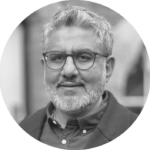
LECTURER & CISLD PROGRAMME LEAD
Dr Omar Qureshi is a lecturer in Western and Islamic Philosophy and serves as the head of the Diploma in Contextual Islamic Studies & Leadership (CISLD) at Cambridge Muslim College. He earned his Bachelor of Arts in Microbiology and subsequently completed his M.Ed. in Curriculum and Instruction – Science Education, both from the University of Missouri – Columbia. Later, he earned his Ph.D. in Cultural and Educational Policy Studies with a specialization in the Philosophy of Education from Loyola University Chicago in 2016. His dissertation, titled “Badr al-Dīn Ibn Jamāʿah and the Highest Good of Islamic Education,” explores the topic of educational institutional identity in the United States. Before joining Cambridge Muslim College, he served as the provost and assistant professor of Liberal and Islamic Studies at Zaytuna College. Dr Qureshi also held the positions of principal and dean of academics at a parochial school located in the western suburbs of Chicago for seven years.
In the field of Islamic sciences, Dr Qureshi has studied various subjects, including Islamic Law (Shāfiʿī), Logic, Kalām theology, Islamic Philosophy, Islamic Legal Theory (usūl al-fiqh), Qurʾānic sciences and exegesis, Ḥadīth nomenclature, Prophetic Biography, and Islamic History.”
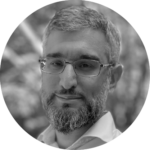
ACADEMIC DIRECTOR
As Academic Director of Cambridge Muslim College, Dr Talal Al-Azem heads the College’s academic programmes, leads in the development of curricula, and oversees research. He was educated at the University of Michigan and at Oxford, and studied the disciplines of Islamic learning in Syria and Turkey. Dr Al-Azem has served as fellow at the Oxford Centre for Islamic Studies and lecturer in the Faculties of Theology and Religion and of Oriental Studies at the University of Oxford. His research focuses on Muslim moral theology, law, and education.
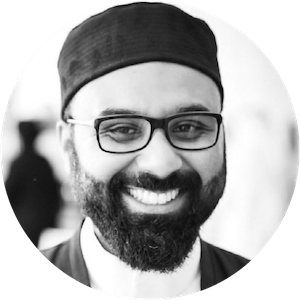
LECTURER & BA (HONS) PROGRAMME MANAGER
Dr Salman Younas’ research focuses on Islamic law in the classical and modern periods with a specific focus on the history of law, legal philosophy, and contemporary legal thought. Dr Younas graduated from Stony Brook University with a degree in Political Science and Religious Studies. After completing his undergraduate degree, he moved to the Middle East where he spent half a decade studying Arabic and the traditional Islamic sciences. In 2013, Dr Younas completed his MA in Oriental Studies from the University of Oxford with honours. He then went on to complete a DPhil in Oriental Studies from the University of Oxford in 2018. His thesis focused on the formation and evolution of the Ḥanafī legal school during the 3rd/9th and 4th/10th centuries. He was previously a researcher at the Oxford Department of International Development and the Hamad bin Jassim Fellow at the Oxford Centre for Islamic Studies.
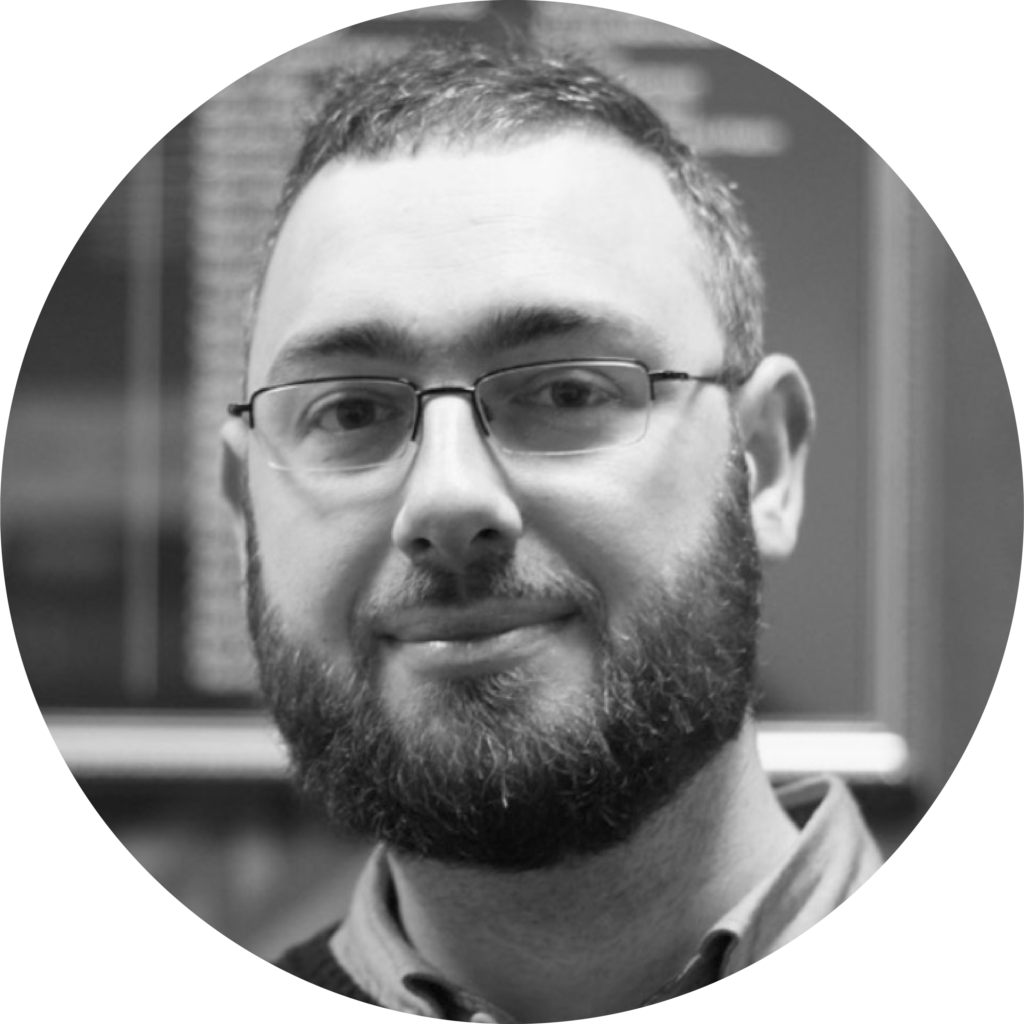
AZIZ FOUNDATION LECTURER IN ISLAMIC STUDIES
Dr Ramon Harvey is Aziz Foundation Lecturer in Islamic Studies at Cambridge Muslim College where he teaches Revealed Foundations on the BA in Islamic Studies. He received his MA and PhD in Islamic studies from SOAS, University of London. His research focuses on Qur’anic studies, philosophical theology, and ethics, both studying the intellectual history of these disciplines and making his own contemporary interventions. Dr Harvey’s first book, The Qur’an and the Just Society, was published by Edinburgh University Press in 2018. He is currently writing a second monograph for EUP in constructive Muslim theology, drawing especially from the Māturīdī tradition. He is also a member of the Editorial Board for the journal Comparative Islamic Studies. Email: rh@cambridgemuslimcollege.org
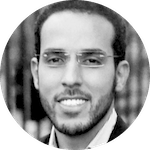
VISITING LECTURER IN SOCIAL SCIENCES
Amin El-Yousfi completed a PhD at the University of Cambridge looking at how everyday Muslim pieties encounter and operate through processes of secularisation and neoliberlisation. His research was based on extensive ethnographic fieldwork in France and the UK looking at the intersection between Islam, neoliberalism and secularism. He is presently a Research Associate in the Department of Theology and Religious Studies at the University of Chester. In addition to studying privately a traditional curriculum of Islamic sciences with ‘ulama in Morocco and the UK, Amin completed an MPhil in Economics and an MPhil in Sociology. He then worked for two years as a Research Associate at the Moroccan Centre for Social Sciences (MC2S) before joining the University of Cambridge with a full Cambridge Trust doctoral scholarship. Amin worked also for two years as a Research Associate at the Groupe Société, Religion et Laïcité (attached to the CNRS).
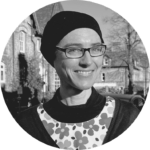
SENIOR RESEARCH FELLOW
Professor Claire Gallien is Senior Research Fellow at Cambridge Muslim College. She received her PhD in English and Comparative Literatures and Studies at the Sorbonne. She also has training in Arabic and Islamic Studies from the Inalco and abroad (Cairo, Damascus, Sanaa, Birzeit, Beirut, and Tunis). Prior to joining Cambridge Muslim College, she was research and teaching fellow at the Zentrum für Islamische Theologie (Tübingen University, Germany) and has had more than ten years experience of teaching and research at the University of Montpellier and the CNRS (France). Her research interests are in Islamic epistemology and Islamic intellectual and religious history, Islamic literature and Sufism, British early-modern orientalism, with a focus on the constitution of Islamic manuscript libraries in early-modern Britain, decolonial thinking and translation. She has studied with Muslim scholars in Egypt, Turkey and the UK.
Is the Diploma in Contextual Islamic Studies & Leadership right for you?
The Diploma in Contextual Islamic Studies and Leadership is open to individuals with a strong foundation in traditional Islamic studies. Specifically designed for graduates of ‘alimiyyah’ programs, we typically require candidates to hold a certificate of graduation from a madrasa with a curriculum covering dars e nizami or an equivalent qualification. A competence in Arabic and the Islamic sciences is a requirement. However, we understand that Islamic studies qualifications can be obtained through various pathways – if your background follows a non-traditional route, we’re open to considering your application on a case-by-case basis.
FURTHER INFORMATION
If you experience any issues uploading your supporting documents or personal statement, please email the documents directly to:
admissions@cambridgemuslimcollege.ac.uk
The requirements for entry on to the programme are:
- British citizenship, or permanent resident status (non–EU nationals cannot be accepted unless they already have relevant visa status)
- Completion of an alim or alima course at a recognised institution of Islamic scholarship, or equivalent education in the traditional Islamic Sciences
- Good GCSEs and A-levels or equivalent alim or alima degree (the College recognises that many students who would benefit from the Diploma course may not have mainstream academic qualifications)
- Good references
- Fluency in written and spoken English.
- Evidence of leadership qualities
- Most applicants are over 18 years-old.
Applicants are expected to be intellectually curious, hardworking, and committed to the aims of the College. The standards of the College are high, and the work is challenging. However, what students put in they get back by being part of a rigorous, innovative and dynamic programme.
The College welcomes applications from men and women seeking to apply their knowledge effectively in the service of the Muslim community and others. The Diploma is suited to those who want to work directly in mosques and Muslim organisations, and those looking to gain higher-level qualifications. In order to apply, the following items must be submitted:
- An Online Application Form
- A personal statement (maximum 1000 words)*
- Copies of academic certificates and transcripts*
- Two references
- Proof of English language ability if English is not your first language.
*If you experience any issues uploading your supporting documents or personal statement, please email the documents directly to:
admissions@cambridgemuslimcollege.ac.uk
References: All applications must include two references emailed directly by the referee to admissions@cambridgemuslimcollege.ac.uk by the application deadline.
Application Guidance
All applicants should read the below documents carefully and send a copy of the Reference Guidance Notes to their referees.
Fees
Tuition fees for the Diploma in Contextual Islamic Studies is £3,500. Once committed to the course, students can pay for their fees in one-lump sum, or over three equal instalments, paid termly.
Scholarships & Bursaries
Cambridge Muslim College endeavours to support successful students, regardless of their financial situation, and it is with emphasis we state that one’s financial need will not impact the admissions process. We work closely with individuals and institutions who are keen on funding students of knowledge. Examples of such institutions ranges from the National Zakat Foundation, Zouq Foundation, and many more.
For further information about scholarships and bursaries see here or email admissions@cambridgemuslimcollege.ac.uk
12 October 2023 – Applications Open
23 February 2024 – Applications Close – We will still consider applications submitted after the deadline, but they will be reviewed after we have completed the shortlisting of those received on time.
26 Feb -12 March 2025 – Shortlisting
w/c 15 April 2024 – Interviews
w/c 6 May 2024 – Offers
*Shortlisted applicants will be invited to attend a 20-minute interview with the recruitment panel who will assess the applicant’s aptitude and commitment.
Any questions? Email us at admissions@cambridgemuslimcollege.ac.uk
